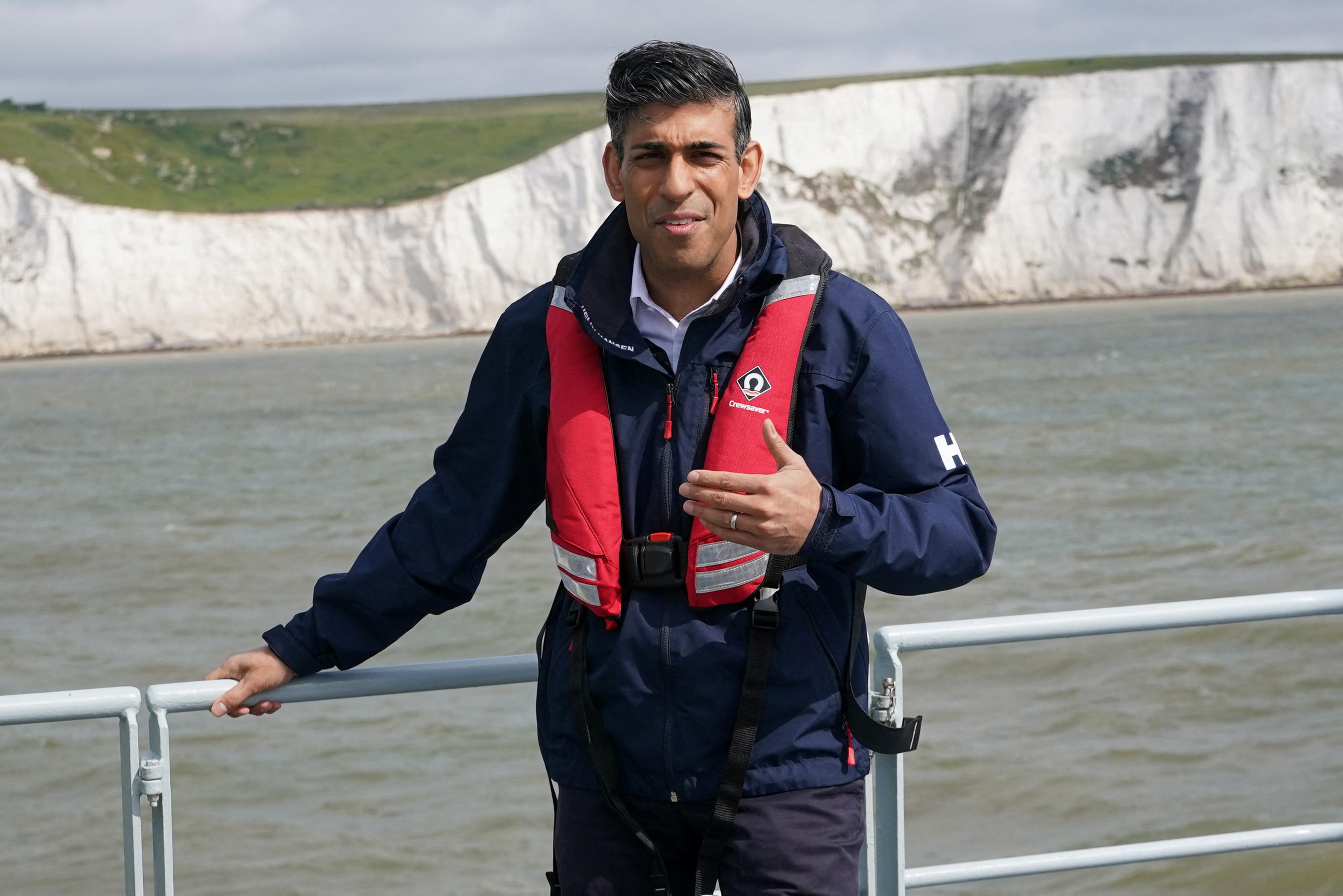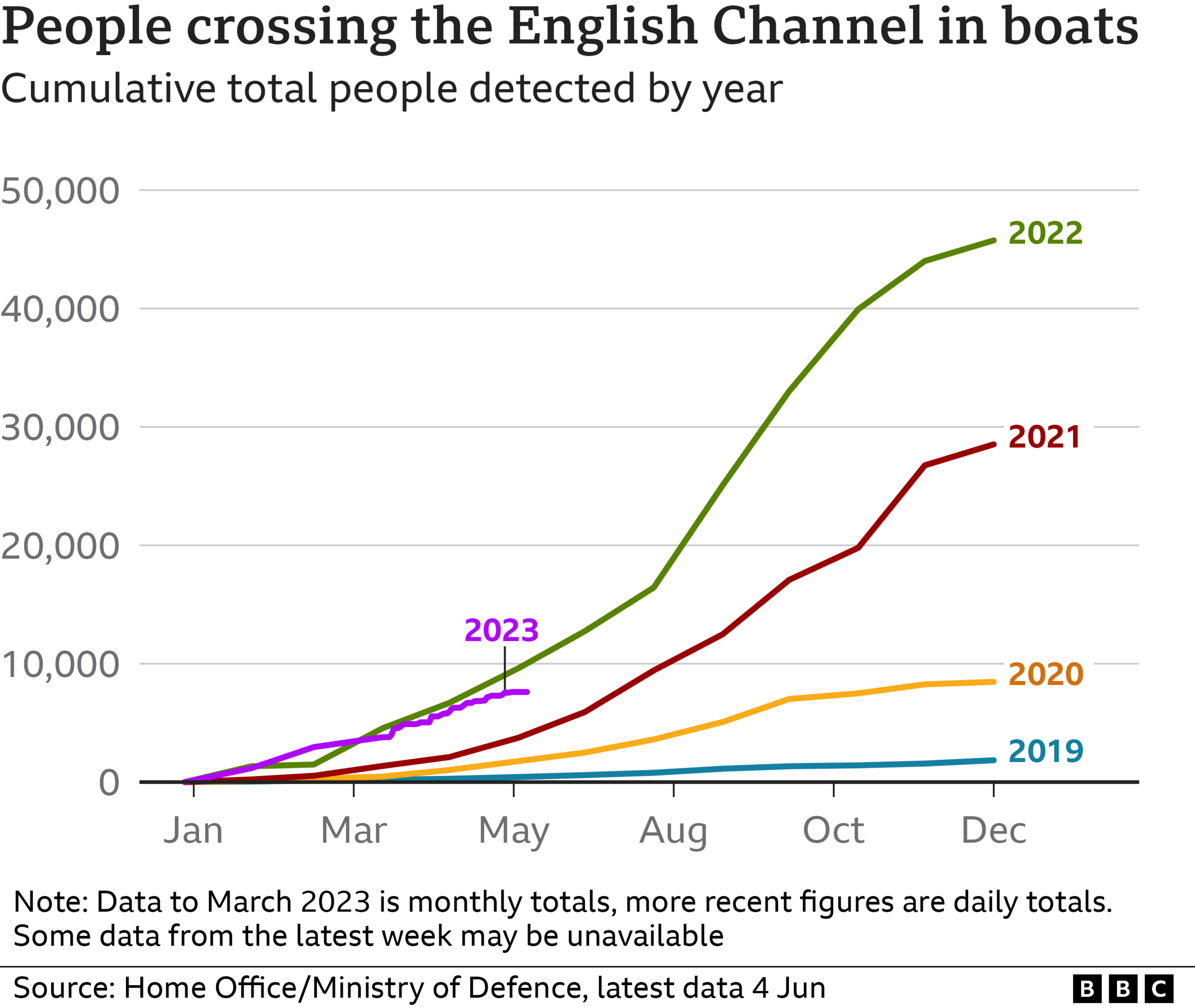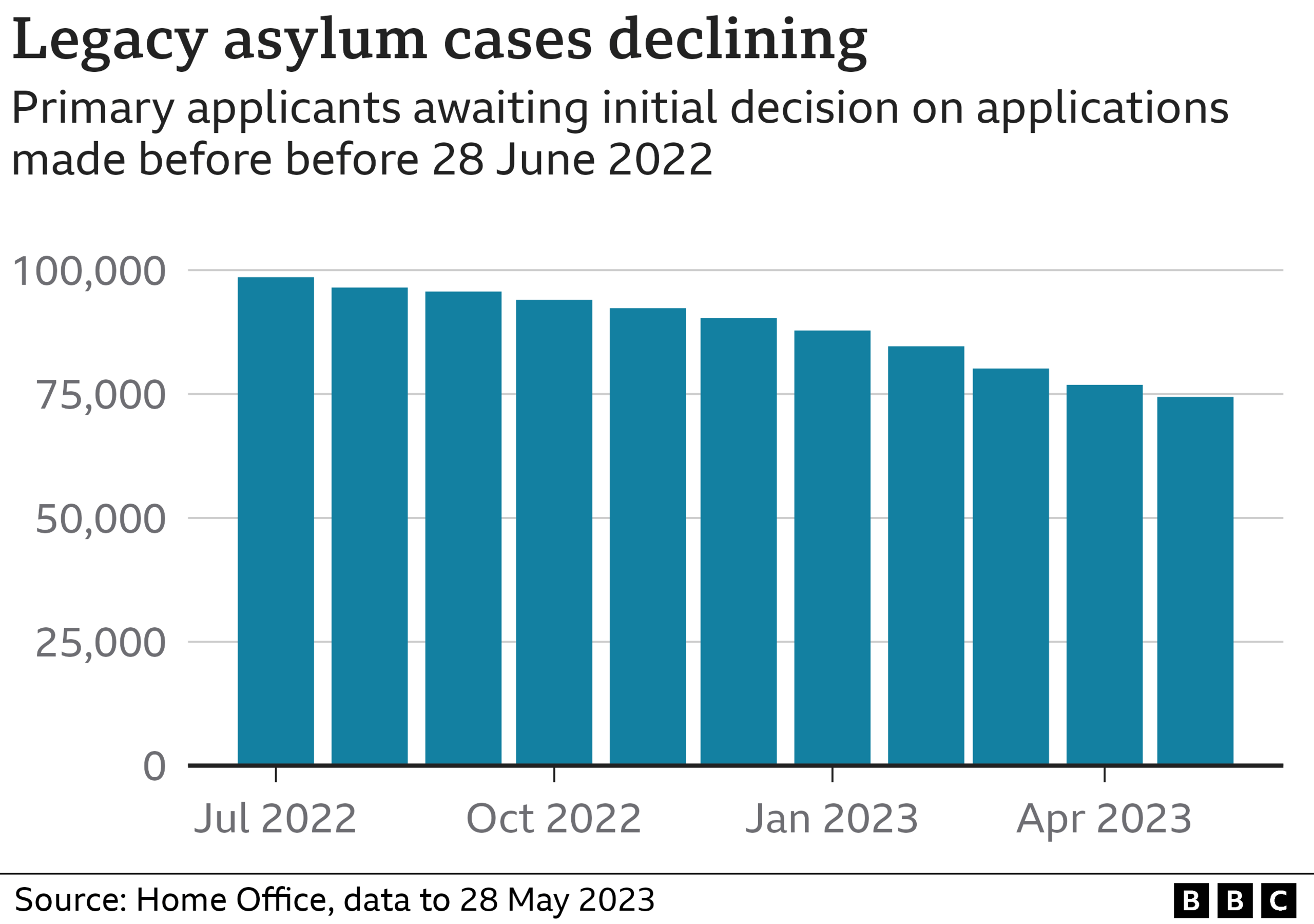Rishi Sunak's claims on small boats fact checked
- Published

Rishi Sunak says his plan to tackle small boat crossings is "starting to work".
The prime minister was speaking in Dover, almost six months after he launched his "stop the boats" policies.
We've examined a number of claims he made in his speech.
Are small boat crossings down 20%?
Mr Sunak said: "In the five months since I launched the plan, crossings are now down 20% compared to last year."
It is true that there were fewer people crossing in small boats, external between January and May.

The Home Office says that between January and May of last year, 9,607 people arrived in small boats.
In 2023, the number of people arriving between January and 30 May was 7,610. This is a decrease of almost 21%.
Earlier on Monday, the Home Office told BBC News that Mr Sunak had actually been comparing January to March 2022 (4,548 arrivals) with the same period of 2023 (3,793 arrivals). This is a 17% decrease. The Home Office later got in touch to say that the prime minister was comparing the January to May periods after all.
Despite the decline in numbers at the start of 2023, the biggest increase in the numbers arriving by small boats in 2022 happened during the summer months. This is typically when the weather is best for crossing the Channel.
Between July and September of last year 20,282 people arrived. This was up 147% on the previous quarter and the largest number ever recorded over a three month period.
So, although small boat crossings have decreased in 2023 they could still rise again over the summer months.
Will the asylum backlog be cleared this year?
The prime minister said the government was "on track" to clear the asylum backlog by the end of the year.
He was referring to initial decisions on asylum applications made before 28 June 2022 - so-called "legacy cases".
He said that the backlog had already been reduced by 17,000 cases.
In December, Mr Sunak pledged to clear the asylum backlog by the end of 2023. However, he later said the pledge related only to cases made before 28 June 2022.
When the pledge was made, there were 90,358 such applications.
By 28 May 2023, that figure was down to 74,410 - a reduction of about 16,000.
However, at the current rate of progress - an average of 3,200 a month - it would take more than 23 months to make the initial decision on the remaining applications. So, the deadline of the end of the year would be missed.

If you look at all asylum claims, including those made since 28 June 2022, the number of people in the UK awaiting an initial decision on their asylum case is at the record high of 172,758.
Are more Albanian asylum seekers being returned?
Mr Sunak said: "We've now returned 1,800 to Albania in just six months."
This is correct. Home Office figures , externalshow that since a new agreement was signed between the UK and Albanian governments in December 2022, 1,788 Albanian nationals were returned to their home country.
However, this figure includes foreign national offenders and people who have returned voluntarily - not just people who applied for asylum.
Between January and March 2023, 390 Albanians were forcibly returned.
Albanians accounted for nearly 30% of small boat arrivals in 2022. Most of them (85%) applied for asylum.
Charts by Becky Dale

Read more about BBC Verify: Explaining the 'how' - the launch of BBC Verify
